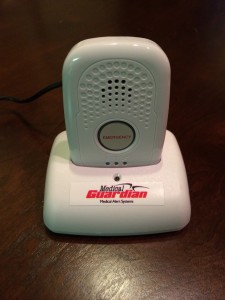Worried about Alzheimer’s? Get the Facts
If you are worried about Alzheimer’s, you are not alone. In a recent study reported by the Alzheimer’s Association, 3,102 American adults were questioned about their knowledge, experience, and attitudes concerning this disease. Of the adults ages 60 and older who participated in the study, 35 percent were more afraid of developing Alzheimer’s than cancer, stroke, or diabetes.
Symptoms of Alzheimer’s
Alzheimer’s affects different people in different ways. However, the most common symptom when a person is first developing this disease is gradually worsening inability to remember new information. This is because the first neurons in the brain to malfunction and die with Alzheimer’s are usually located in regions involved with forming new memories.
As the disease progresses, neurons in other parts of the brain malfunction and die, causing other symptoms, including:
- Memory loss disruptive to daily life
- Difficulty completing familiar tasks
- Time or place confusion
- Challenges in solving problems or planning
- Difficulty understanding spatial relationships and visual images
- Misplacing objects and lessening ability to retrace steps
- New problems with words in writing or speaking
- Withdrawal from social activities or work
- Poor or decreased judgment
- Apathy, depression, and changes in mood or personality
Risk Factors for Alzheimer’s
According to the Alzheimer’s Association, experts believe that Alzheimer’s usually develops due to multiple contributing factors, like other chronic diseases. Risk factors for Alzheimer’s include:
- Advanced age: This is the greatest risk for Alzheimer’s. Most people with this disease are diagnosed at age 65 or older.
- Family history: People who have a parent or sibling (first-degree relative) with Alzheimer’s are more likely to develop this condition than those who do not. Individuals who have more than one first-degree relative with Alzheimer’s are even more likely to develop the disease.
- Apolipoprotein (APOE) 4: The APOE gene provides a blueprint for a protein that carries cholesterol in the bloodstream. Everyone gets one form of this gene – either 2, 3, or 4 – from each parent. Having the number 4 form increases the risk of developing Alzheimer’s, and at a younger age. An estimated 20 to 30 percent of people in the U.S. have the 4 form of the APOE gene.
- Mild cognitive impairment: An individual with mild cognitive impairment (MCI) has mild changes in thinking abilities that are noticeable to family members and the affected individual, but not yet to the level that prevents carrying out daily activities. However, people with MCI have a higher risk of developing Alzheimer’s and other types of dementia.
- Cardiovascular disease risk factors: Recent research indicates that heart and cardiovascular health are linked to brain health. Factors that increase the risk of cardiovascular disease also increase the risk for Alzheimer’s.
- Lack of social and cognitive engagement: Some studies suggest that remaining socially and mentally active may help support a healthy brain and reduce the risk of Alzheimer’s and other types of dementia.
- Fewer years of formal education: Research has shown that having fewer years of formal education increases the risk for Alzheimer’s. One theory is that having more years of education builds a “cognitive reserve” in the brain to compensate for changes in the brain that could cause Alzheimer’s symptoms.
- Traumatic brain injury (TBI): When a TBI occurs, normal brain function is disrupted by a blow or jolt to the head or a foreign object penetrating the skull. Moderate to severe TBI increases the risk of developing Alzheimer’s or dementia.
Fall Alert Systems for Older Adults
Along with a higher risk of developing Alzheimer’s, senior citizens have a higher risk of a falling. Fortunately, medical alert pendants are now available with built-in fall alert systems that automatically notify an operator when a fall occurs, so you can have help on the way immediately. Our medical alert comparison provides information about some fall alert systems available today.



